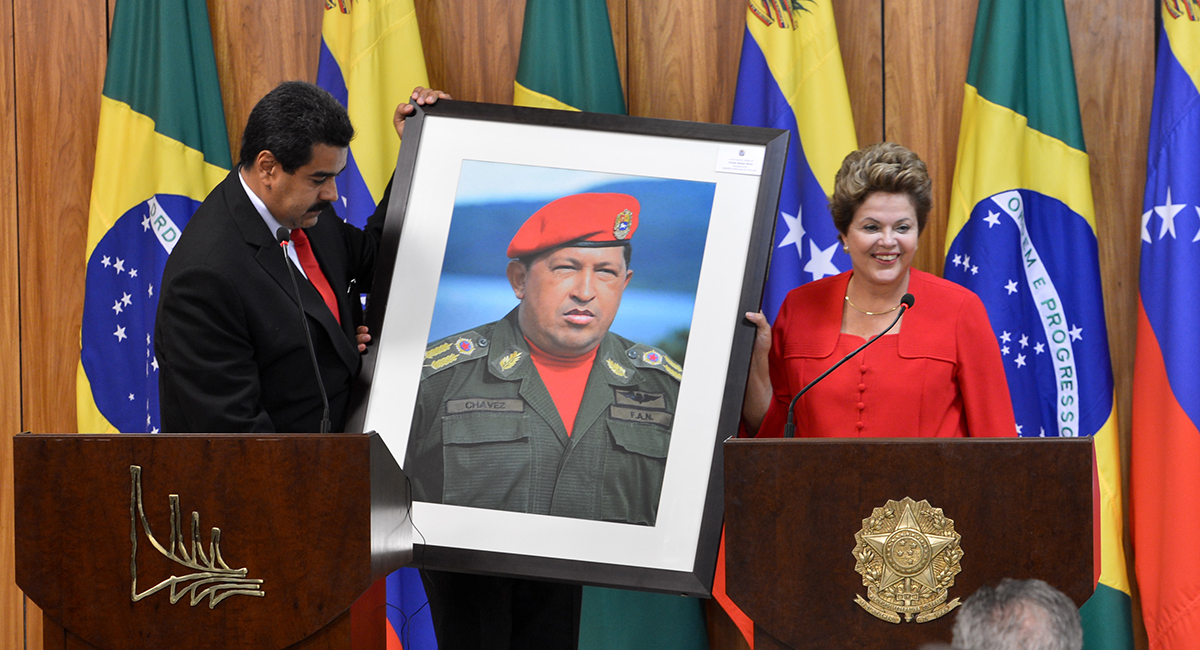A record 54,833 Venezuelans were arrested at the U.S. southern border in September, marking the first time Venezuelans have ever been the number-one nationality apprehended at the U.S. border.
The enormous number of Venezuelans fleeing their country speaks volumes about the crisis they face at home. But, if properly managed, it need not cause a crisis in the United States.
Venezuelans constituted one-fourth of all illegal border crossing arrests, which were up 21 percent from August. Overall, more than 7.7 million Venezuelans have fled their country since 2013, according to the United Nations High Commissioner for Refugees. Nearly 6.5 million settled in Latin America or the Caribbean; in recent years, however, increasing numbers have come to the United States.
As most Americans know, economic opportunity has attracted immigrants to the United States throughout our history. While that pull certainly attracts Venezuelans today, the crisis at home is the primary reason most have fled.
Venezuela’s crisis is an outgrowth of Hugo Chavez’s “Bolivarian Socialist” revolution, which began 25 years ago, in 1998, when Chavez was elected to the Venezuelan presidency. Although U.S. Sen. Bernie Sanders (I-Vt.) and others praised Chavez’s policies early on, the reality is that those policies have been an economic disaster—despite the fact that Venezuela sits on the world’s largest proven oil reserves.
Within years of Chavez’s ascendency to power, Venezuela was having to import basic necessities with the money the government earned from oil exports, as domestic production of other goods and services declined. Oil production eventually declined too, due to mismanagement and lack of capital spending on maintenance. In 2014, when global oil prices precipitously dropped, Venezuela found itself in a full-blown crisis.
I witnessed the crisis in 2017 at the border crossing at Cucuta, Colombia, where thousands of Venezuelans streamed across the bridge each day. Some were coming to buy basic necessities, unavailable in Venezuela, and then returning home; others were fleeing their country.
Inflation hit 1,600 percent in the year leading up to my visit and many Venezuelans were going hungry.
The worst was still to come, however. Inflation peaked at 65,000 percent in 2019 (with nearly a million people fleeing the country that year, according to World Bank tallies) and still averages nearly 500 percent. The Venezuelan economy contracted 69 percent from its 2012 peak by the time I visited less than five years later, and it has fallen another 14 percent since then. In short, Venezuela’s failed socialist policies are causing a mass exodus.
This situation helped cause the crisis many American border communities have been experiencing since the Biden administration gave illegal immigrants a green light to enter the U.S. More recently, even New York and other left-leaning “sanctuary” cities and states have complained about the burden of sheltering migrants.
Sensible immigration policy, of course, could minimize these difficulties.
The Department of Homeland Security recently took a step in the right direction when it announced that it would grant Temporary Protected Status to the 472,000 Venezuelans who had arrived in the United States prior to July 31. That would allow them to work legally, reducing the burden on local government services. And for those who worry about losing their jobs to such newcomers, research indicates that immigrants neither “steal” jobs nor depress overall wages.
Illegal crossings created a crisis for border communities and the inability to obtain work legally is the main reason immigrants burden city services. An orderly and legal immigration system that provides Venezuelans and others permission to work is the best way to address both problems.
Unfortunately, the Biden administration recently announced that it will start running deportation flights for Venezuelans who arrive illegally, returning them to the brutal socialist dictatorship they fled. A better approach entails moving towards an Ellis Island-style immigration policy that allows Venezuelans yearning to breathe free a legal path to live and work in America.












